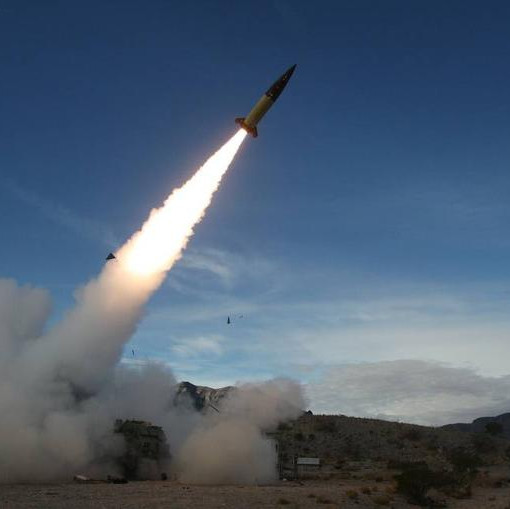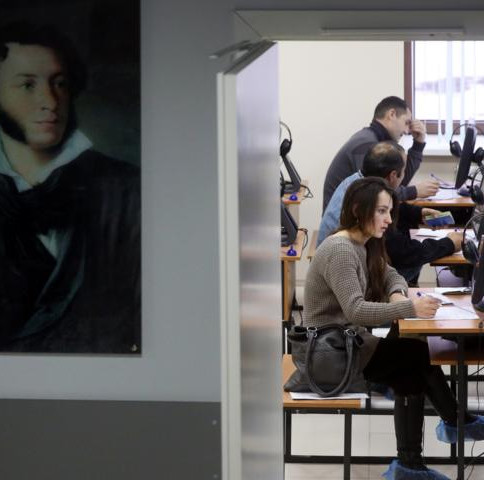The techniques used to wage dirty information campaigns are well known. It is, first of all, sticking all kinds of labels. "Terrorism", "totalitarianism", "genocide" and suchlike hard words have taken deep root in the lexicon of Tbilisi officials. Targeted at Western audiences, they are used whenever reference is made to South Ossetia or Abkhazia. The desire to speak a language pleasing to the West is quite understandable – Saakashvili needs support from the US and the European Union. However, when Georgian state minister G. Khaindrava starts, in a fit of polemic temper, calling Russia "a fascist state", this can cause but bitterness and irritation in a country where such epithets are downright offensive considering the proximity of historic analogies.
Another favorite device of Georgian specialists in political technologies is repeating one and the same false thesis umpteen times. Thus stereotypes are formed out of labels – a method borrowed from the arsenal of Dr. Goebbels (incidentally, which state is fascist?) and based on the cynical assumption that a lie, to be effective, has to be massive, big, blatant and persistent. Notably, some real-life facts may be used as a cover for massive disinformation.
The same effect is achieved by using systematic distortion of historical facts, misquotation, reference to non-existent authorities, as well as periodic handouts of scandalous facts which are impossible to check, the showing of scare images from scenes of accidents and other similar tricks designed to create emotional discomfort and neutralize man's ability to rationally assess the offered information.
However, such manipulations of conscience can only create an illusion of objectivity and truthfulness. As a rule, they are easy to disprove. As a matter of fact, any tendentious selection of illustrative material can only be effective provided that people, as objects of propaganda, have no access to alternative information. In our age of television and internet this would apply only to regions with a very limited information infrastructure, which would in any case rule out both Russia and Georgia.
Nevertheless, the prospect of holding the audience's attention by means of carefully selecting news items and "pictures" seems to be very attractive to Georgian leadership. Hence the regimen of information blockade, distribution and limitation that has been imposed in Georgia. It is mostly foreign media that are affected, but – which is more important – the loser is the Georgian people who are thus deprived of alternative sources of information and are obliged to consume only the dutifully cooked "desirable" facts.
But "desirable" facts are often in short supply for propaganda purposes. Then they are simply invented. A widely used method is creating false newsworthy events, or, in plain words, provocations. A classic example of such a provocation was the recent incident with the seizure of a truck belonging to Russian peacekeepers. According to Commander of the Russian Peacekeeping Force Marat Kulahmetov, Russian peacekeepers are subjected to such provocations all the time. As a result of creating such "newsworthy events", people may die if a soldier's finger falters on the trigger.
Any such faked incident can be presented by Georgian PR-men as a colorful show attracting the attention of foreign media and replicated by hundreds of TV channels. This is one more feature of modern political PR-technologies – the desire to call the audiences' attention to this or that event by means of a flashy package and garish presentation. Georgian specialists have copied the use of these Hollywood techniques from their American colleagues – masters of visual agitation. Even Georgian statesmen, including president Saakashvili, act like showmen, not as responsible politicians.
But showbiz also has its own canons and nuances of genre. As they say, there is only one step from the sublime to the ridiculous. If each punctured tire is turned into an international scandal, and every piece of bent old piping lying at the river bottom is taken to imply an attempt on the president's life, then the total picture will resemble not a thriller, but rather a situation comedy. That is just what we see. Saakashvili's Western partners are making cracks about his ludicrous verbal passages, while the very figure of the Georgian president gives a new inspiration to foreign cartoonists' creativity. If things continue on the same lines, a new cartoon scandal may be in the offing.
It might all be amusing but for one thing. On the whole, information wars between states are commonplace today. But one gets the creeps when psychological operations start to acquire the characteristics of undisguised threat, intimidation by military might and combat superiority. As a rule, it is a sign of transfer from peacetime information/psychological exercises to wartime operations when propaganda becomes directed against the enemy's armed forces. This may serve as an indirect indication of preparations being underway for a real "hot" war, not information warfare.
If one is to observe the evolution of Georgia's information activities over the past two years – from the "love offensive" campaign of the spring of 2004 to the present-day militaristic demonstrations, it will become evident that the proportion of threats and intimidation in the overall propaganda torrent has considerably grown and become dominant. And this gives rise to serious concerns.
What should Russian and foreign media do under the circumstances? Business as usual - they should tell the truth and nothing but the truth. It is the objective function of the press, it is journalists' duty. We must tear off labels and masks, destroy stereotypes, expose liars, refuse to publish unchecked facts, resist provocations, search for truth and call a spade a spade.
And another thing. Public opinion is very conservative. But, unfortunately, it too comes under the sway of propaganda. We can see now how propaganda begins to swing the heavy pendulum of public opinion, arousing suspicions, distrust, ill-feeling, etc. – and not only in relations between Russia and Georgia, but between the two peoples as well. The Russian and the Georgian peoples have been united by living side by side, by a common faith, two centuries of common history and the holy bonds of blood shed in fighting a common enemy. This all must not be put in danger because of some politicians' opportunistic political considerations.









